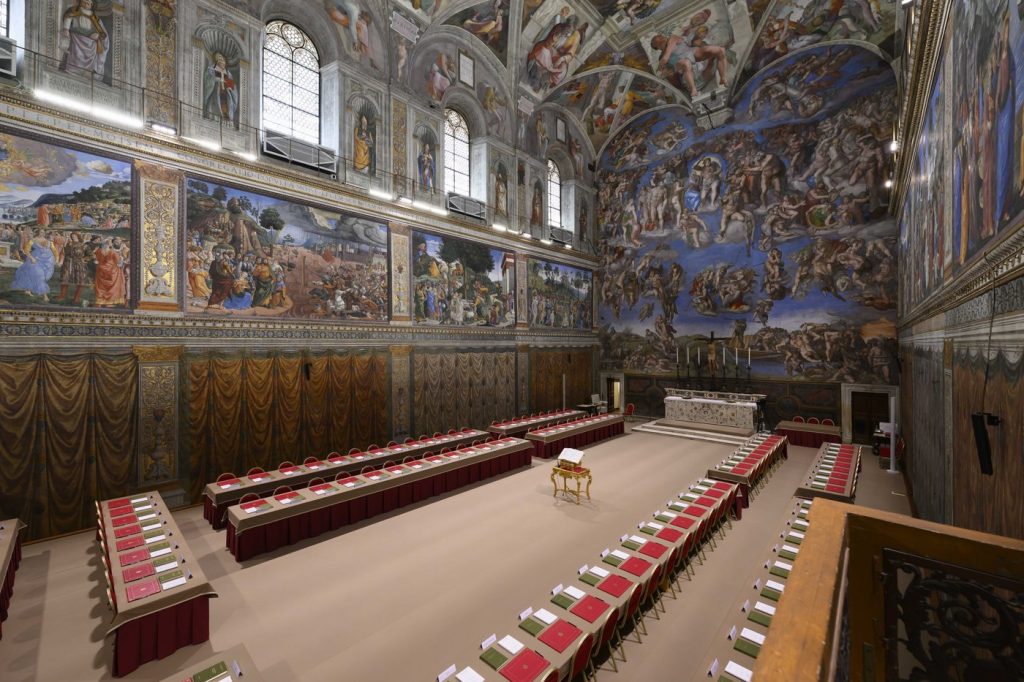VATICAN CITY (AP) — In a significant moment for the Catholic Church, 133 cardinals are set to commence a highly secretive conclave to elect a successor to Pope Francis, marking the most geographically diverse gathering in the Church's 2,000-year history. The cardinals, representing 70 countries, will engage in this historic ritual, completely sequestered from the outside world, with their cellphones surrendered and communication channels jammed to ensure their discussions remain confidential.
Pope Francis appointed 108 of these electors, choosing many from regions like Mongolia, Sweden, and Tonga, which had never previously had a cardinal. By exceeding the traditional limit of 120 cardinal electors and including younger figures from the “global south,” areas often overlooked in terms of representation, the pope has introduced a unique element of unpredictability into this age-old process.
The cardinals are aware that many of them are meeting for the first time, which raises concerns about how quickly they might coalesce around a candidate to secure the two-thirds majority needed to elect the 267th pope. Cardinal Mario Zenari, the Vatican’s ambassador to Syria, echoed this sentiment as he called for patience among his peers as they prepared for the conclave.
The conclave will start with a final Mass held in St. Peter's Basilica, conducted by Giovanni Battista Re, the dean of the College of Cardinals. This mass aims to invoke the wisdom, counsel, and understanding needed to select a worthy new leader. Re, at 91, had presided over Pope Francis's funeral, delivering a moving sermon reflecting on Francis's groundbreaking 12-year papacy.
At 4:30 p.m. local time, the cardinals will make their way into the Sistine Chapel, chanting the “Litany of the Saints” and the Latin hymn “Veni Creator,” calling on divine guidance for their decision. Upon entering, they will solemnly vow to maintain the secrecy of the proceedings and commit to resisting external influences on their voting process. Each cardinal will place a hand on the Gospel as they pledge to fulfill their duty “so help me God and these Holy Gospels.”
Following the oath, the retired preacher of the papal household, Cardinal Raniero Cantalamessa, will deliver a meditation. The master of papal liturgical ceremonies, Archbishop Diego Ravelli, will then declare “Extra omnes” (Latin for “all out”), prompting anyone not eligible to vote to leave, thus allowing the official proceedings to begin.
While a first vote may occur on Wednesday, it is not mandatory. If no winner emerges, black smoke will likely signal this outcome around 7 p.m. The cardinals will then rest overnight and reconvene on Thursday morning for up to two ballots during the day until a new pope is elected. Historically, conclaves over the last century have required between three to eight votes to elect a pope, with past elections taking various numbers of ballots, including John Paul I on the third and John Paul II on the eighth.
As the cardinals embark on this transformative process, numerous challenges weigh on their minds. Key questions include whether to continue and solidify Pope Francis’s progressive legacy—focused on women, LGBTQ+ rights, environmental issues, and migration—or to roll back these advancements in efforts to unify a church that has experienced polarization during his papacy. The ongoing clergy sex abuse scandal casts a long shadow over these critical discussions and decisions.
With Pope Francis having nominated 80% of voters, continuity is likely, yet the direction and shape it may take remain uncertain. This complexity complicates the task of identifying front-runners. Notable candidates emerging from discussions include Cardinal Pietro Parolin, aged 70, a seasoned Italian leader and Francis’s secretary of state; Cardinal Luis Tagle, 67, a top contender for potentially being the first Asian pope; and Cardinal Peter Erdo, 72, the archbishop of Budapest known for his conservative stance.
The voting itself will adhere to a strict process outlined by Church law. Each cardinal will inscribe his choice on a ballot, proclaiming a solemn oath to witness their vote. The cast ballots will undergo those processes of counting, recording, and eventual incineration to determine the outcome, indicated by either black smoke for no winner or white smoke to signify the election of a new pope.











